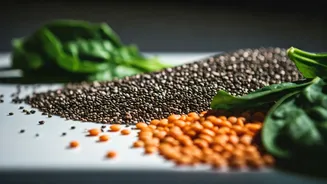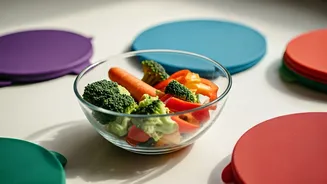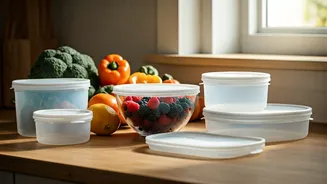Constipation: What to know
Constipation, a common digestive issue, can cause considerable discomfort and disrupt daily life. It is often characterized by infrequent bowel movements
or difficulty in passing stools. Various factors, including a low-fiber diet, insufficient water intake, lack of physical activity, and certain medications, can contribute to this condition. Recognizing the underlying causes is crucial for effective management. This expert advice from an AIIMS-trained gastroenterologist aims at providing practical dietary solutions to address constipation naturally. Understanding the impact of food choices on gut health helps in making informed decisions for improved digestive function and overall well-being. The foods mentioned are great natural remedies for constipation.
Chia Seeds for Relief
Chia seeds are highly effective in alleviating constipation because of their high fiber content. Fiber adds bulk to the stool, making it easier to pass through the intestines. These tiny seeds also absorb water, which further softens the stool and promotes regular bowel movements. Incorporating chia seeds into your diet can be as simple as adding them to yogurt, smoothies, or oatmeal. Consuming approximately 1-2 tablespoons of chia seeds daily can help improve digestive function and provide relief from constipation. Furthermore, chia seeds provide essential nutrients, offering additional health benefits beyond their role in aiding digestion. The fiber content in chia seeds also contributes to feeling full for longer periods.
Spinach: A Fiber Powerhouse
Spinach, rich in both soluble and insoluble fiber, is a beneficial food for relieving constipation. Insoluble fiber helps in increasing stool bulk, while soluble fiber adds moisture. These actions encourage regular bowel movements. Spinach is also a good source of magnesium, which helps relax the intestinal muscles, further aiding the digestive process. Integrating spinach into your diet is easy. You can add it to salads, stir-fries, or even blend it into a green smoothie. Including spinach in meals can significantly improve digestive health and prevent constipation, offering a simple yet effective dietary solution. The nutrients present in spinach play a vital role in maintaining gut health.
Lentils: Boost Digestion
Lentils are excellent for improving digestion and alleviating constipation. They are packed with fiber, both soluble and insoluble. This combination is essential for promoting regular bowel movements. Lentils also contain other nutrients that support overall gut health. These nutrients assist in softening the stool and easing its passage through the intestines. Lentils are a versatile food that can be used in soups, stews, or salads. Regularly consuming lentils adds a significant amount of fiber to your diet, helping to prevent and treat constipation. Moreover, the high fiber content can help maintain a healthy gut microbiome, which is vital for digestive health and overall well-being. Including lentils in your diet supports your digestive health naturally.
More Foods for Gut Health
Besides chia seeds, spinach, and lentils, several other foods can help relieve constipation and boost digestion. Incorporate high-fiber fruits like apples and pears into your daily meals. Apples, particularly with their skin, provide plenty of fiber to promote regular bowel movements. Whole grains, such as oats and quinoa, are also good choices for digestive health because they contain a rich amount of fiber. Drinking plenty of water is essential for staying hydrated. Adequate hydration helps the fiber to work efficiently in the gut and prevents constipation. Incorporating these foods and good hydration is a solid strategy.
Tips for Better Digestion
Following a diet that aids digestion is important, but there are other lifestyle changes that support healthy bowel function. Exercise regularly because physical activity stimulates the digestive system, promoting regular bowel movements. Ensure you are well-hydrated by drinking enough water throughout the day. Water softens the stool, making it easier to pass. Consider adding probiotic-rich foods, such as yogurt or kefir, to your diet, as probiotics can help balance your gut bacteria. Eating at regular meal times and avoiding processed foods can also support healthy digestion. These simple steps can significantly enhance your overall digestive well-being.












